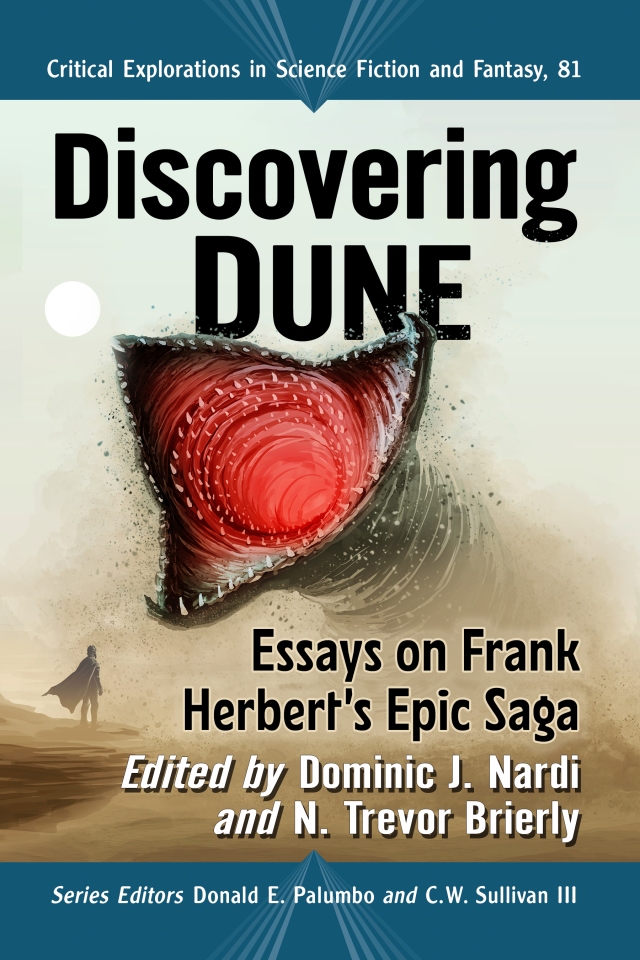For several years, I’ve been working with N. Trevor Brierly on an academic volume about Dune. The final book, Discovering Dune: Essays on Frank Herbert’s Epic Saga, was just published by McFarland last week. My coeditor and I chose 14 essays covering a variety of topics, including eugenics, Byzantine history, environmentalism, and pedagogy (see table of contents).
We were honored to receive a foreword from Tim O’Reilly, the godfather of Dune scholarship, and endorsements from Kara Kennedy and Joshua Pearson, two stars of the next generation of Dune scholarship.
Discovering Dune is an academic text – it went through peer review – but we hope the pricing makes this book accessible to Dune fans everywhere – and not just university libraries. It’s available from Amazon, Barnes & Noble, Books-A-Million, IndieBound, and most other major booksellers.
Let the spice flow!









